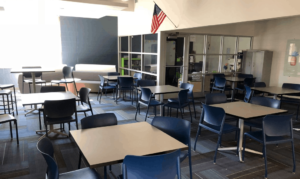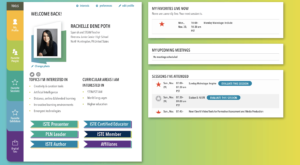Grassroots Want More Funding for Virtual Charters

- Image via Wikipedia
Here is the full story as it appeared in the Atlanta Journal and Constitution.
Parents and supporters of cyber charter schools called for the state to increase funding for virtual campuses and enhance school choices Tuesday at an online education summit at an Atlanta hotel.
While cyber schools offer cost savings on building and transportation expenses, officials with Georgia Families for Public Virtual Education — sponsor for the Virtual Education Summit — said students can’t get a quality education in comparison to students in regular classes if their schools are underfunded.
Renee Lord, president of the cyber school parent group, said the $3,300 suggested for Georgia virtual charter schools is below the national funding average and does not serve students adequately. Virtual school funding nationally ranges from $3,310 per pupil in South Carolina to $7,590 in Hawaii.
“I think that a funding level of $6,500 per student would really enhance the experience for our students,” Lord said. “Our schools have been operating on a shoestring budget.”
State virtual charter schools could have an increase soon. After two approved cyber schools chose not to open in August, leaders of the Georgia Charter Schools Commission acknowledged they might have misjudged the cost of virtual public education. The board agreed to vote on a new funding formula at its Dec. 16 meeting, said Mark Peevy, ecommission executive director.
“We approved two schools last year and we started looking at their budgets to build a consensus,” said Peevy, a summit panelist. “We are taking a look at what is going on across the nation. I don’t know where we will land.”
State Rep. Alisha Thomas Morgan, another panelist, said more funds should be invested in virtual education because of the alternative choice it offers.
“We like to control money and we like to control where children go [to school],” Morgan said of the legislature. “I think we need to break that mold. Whether it’s home school, charter school, virtual charter school, we have it in our constitution to ensure that every child gets a quality education.”
Officials with the state Department of Education’s virtual option, Georgia Virtual School, also pushed for more choice at the summit. The online campus serves about 10,000 students during the calendar year. Another 16,000 take online credit recovery to make up failed classes. GVS wants to expand its offerings to serve students from K-12 instead of 6-12 only.
“We are interested in opening it up so that there is the availability to take more than one course,” said Christina Clayton, the state’s director of virtual learning. “We are looking at ways to serve student needs.”
Related articles
- Invite: Finance Experts Discuss Virtual Schools Funding (edreformer.com)
- What Does a Virtual Education Cost? (edreformer.com)
- Georgia Families Want Seat On Ed Research Panel (edreformer.com)
- Georgia Charter Conflagration in Higher Court (edreformer.com)
- Report shows fourth-grade students in N.J. public, charter schools have same passing rates (nj.com)
- An Open Letter from Andrew Broy, President of the Illinois Network of Charter Schools (prnewswire.com)






0 Comments
Leave a Comment
Your email address will not be published. All fields are required.